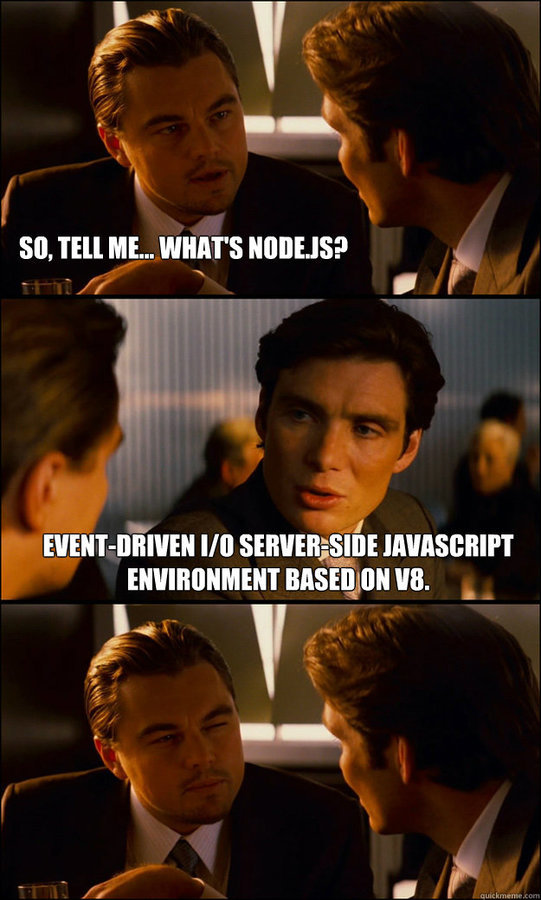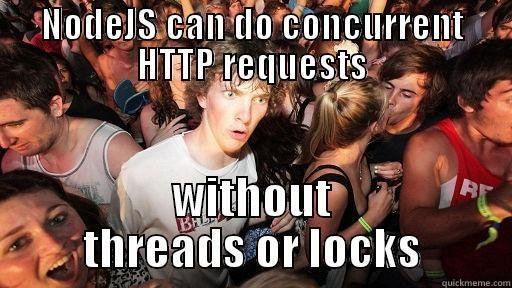Introduction to

What is Node?
Node.js® is a JavaScript runtime built on Chrome's V8 JavaScript engine. Node.js uses an event-driven, non-blocking I/O model that makes it lightweight and efficient.

...Say again?
- Ecosystem using Chrome's Javascript engine, V8, to run programs outside of the browser.
- It is non-blocking, meaning that it can spawn multiple processes and communicate through events.
- It is completely modular
- It is really fast and lightweight, as opposed to systems such as .NET or JVM
- Also, it comes with its own cross-platform package manager, npm.

Range of abilities
Node applications range in a lot of domains - it can basically do
everything in the realm of the imagination:
- Web Servers: Express, Koa, Hapi...
- Database drivers: MySQL, SQLite, MongoDB...
- Task Runners: Grunt, Gulp, Webpack...
- Test Runners: Karma, Mocha, Selenium...
- Command Line Tools: JSHint, Babel, Yeoman...
- Programs: PhantomJS, PM2 (process manager)...
- Desktop Applications: Slack, Atom...
- Other: IoT, Web Browsers, Media Streamers, etc...
Example: Hello World Server in Node
const http = require('http');
const hostname = '127.0.0.1';
const port = 3000;
const server = http.createServer((req, res) => {
res.statusCode = 200;
res.setHeader('Content-Type', 'text/html');
res.end('<body>Hello World!</body>');
});
server.listen(port, hostname, () => {
console.log(`Server running at http://${hostname}:${port}/`);
});The Node API
- File System operations: Paths, OS, FS
- Network operations: TCP/IP, DNS
- Process Management
- HTTP Requests
- Streams
- Sockets
- Buffers, I/O
- etc...
Title Text
Subtitle
nodejs
By Elior Boukhobza
nodejs
This is node.JSSSSSSS
- 1,358



